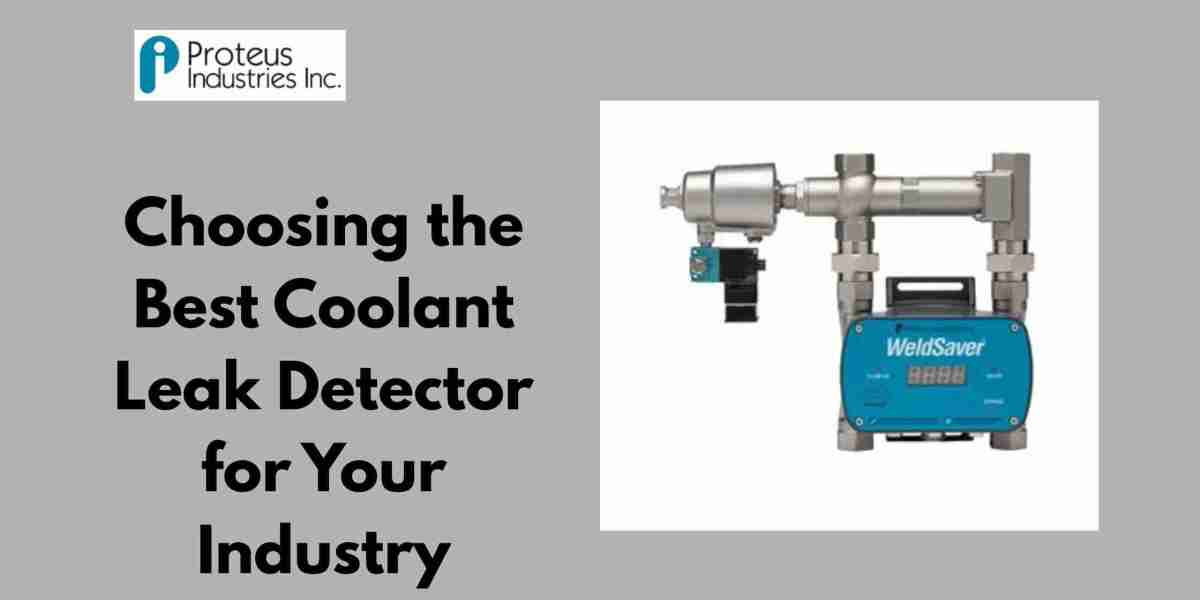In industrial environments, detecting coolant leaks promptly is essential to maintaining uninterrupted operations. Coolant systems are responsible for regulating equipment temperature and preventing overheating. When leaks go unnoticed, they can cause serious problems such as corrosion, reduced efficiency, and damage to critical components. In severe cases, this can lead to complete system shutdowns or failures.
The consequences of undetected leaks include costly repairs, unplanned maintenance, production delays, and safety risks. By implementing early leak detection, industries can minimise financial losses, prevent downtime, and ensure long-term reliability of their machinery.
What Is a Coolant Leak Detector?
A coolant leak detector is a specialised tool designed to identify leaks in industrial cooling systems quickly and accurately. Its primary function is to maintain equipment performance and prevent unexpected breakdowns.
Some common signs that indicate the need for leak detection include:
- Sudden increases in system temperature
- Decreasing coolant levels
- Visible stains, residue, or corrosion around cooling components
Industries like automotive, aerospace, manufacturing, and HVAC rely on coolant leak detectors to avoid costly failures and enhance operational safety.
Key Industry Applications of Coolant Leak Detectors
1. Automotive Industry
Automotive technicians use portable, cost-effective leak detectors to identify leaks in radiators and coolant lines. Quick detection prevents overheating and reduces repair costs.
2. Manufacturing Facilities
Manufacturing plants require rugged detectors capable of withstanding high heat, vibration, and demanding conditions. Real-time leak detection minimises production interruptions and costly downtime.
3. Aerospace Sector
The aerospace industry demands highly sensitive and precise detectors that comply with strict aviation safety standards. Even minor leaks must be identified promptly to ensure optimal system performance.
4. HVAC and Refrigeration
Leak detectors in HVAC and refrigeration systems need to be compatible with multiple refrigerant types. Portable and user-friendly devices allow technicians to perform quick and accurate inspections with minimal training.
Essential Features to Look for in a Coolant Leak Detector
1. High Sensitivity and Accuracy
An effective detector identifies even the smallest leaks before they cause extensive damage. This prevents efficiency loss, environmental harm, and high repair costs.
2. Compatibility with Multiple Coolant Types
Different systems use various coolants. Ensure the detector is compatible with your coolant type to avoid false readings and ensure reliable leak detection.
3. Advanced Detection Technology
Modern detectors use technologies such as:
- Ultrasonic sensors – Detect sound waves from escaping coolant
- Infrared sensors – Identify heat patterns from leaks
- Electronic sensors – Offer fast and precise detection
Choose a technology that suits your industry environment for maximum efficiency.
4. Portability and Ease of Use
A compact, lightweight design allows technicians to inspect complex systems with minimal effort. Ergonomic detectors improve mobility and reduce fatigue during prolonged inspections.
5. Durability and Low Maintenance
Industrial settings require robust detectors that can endure harsh conditions. Durable devices last longer, reduce maintenance costs, and deliver consistent performance.
6. Cost Efficiency and ROI
Although high-quality detectors may cost more initially, they prevent costly repairs, equipment failures, and production losses, ensuring an excellent long-term return on investment.
Ensure Safety and Regulatory Compliance
Selecting a detector that meets industry safety and environmental standards is critical. For example, HVAC leak detectors must comply with EPA Section 608 for refrigerant detection.
Routine calibration and maintenance ensure accurate readings and extend the device’s lifespan. Compliance not only protects the environment but also avoids potential legal liabilities.
Common Mistakes to Avoid
- Ignoring Coolant Compatibility – Leads to inaccurate readings and missed leaks
- Using Low-Sensitivity Devices – Small leaks can grow into costly damage
- Skipping Calibration and Maintenance – Even advanced detectors lose accuracy over time
Conclusion
Investing in a high-quality coolant leak detector is a smart decision for any industry that depends on cooling systems. It helps prevent costly breakdowns, maintain productivity, and ensure compliance with safety standards. Whether in automotive, aerospace, manufacturing, or HVAC, using advanced leak detection solutions from trusted providers like Proteus Industries Inc. ensures long-term equipment reliability and operational cost savings.







